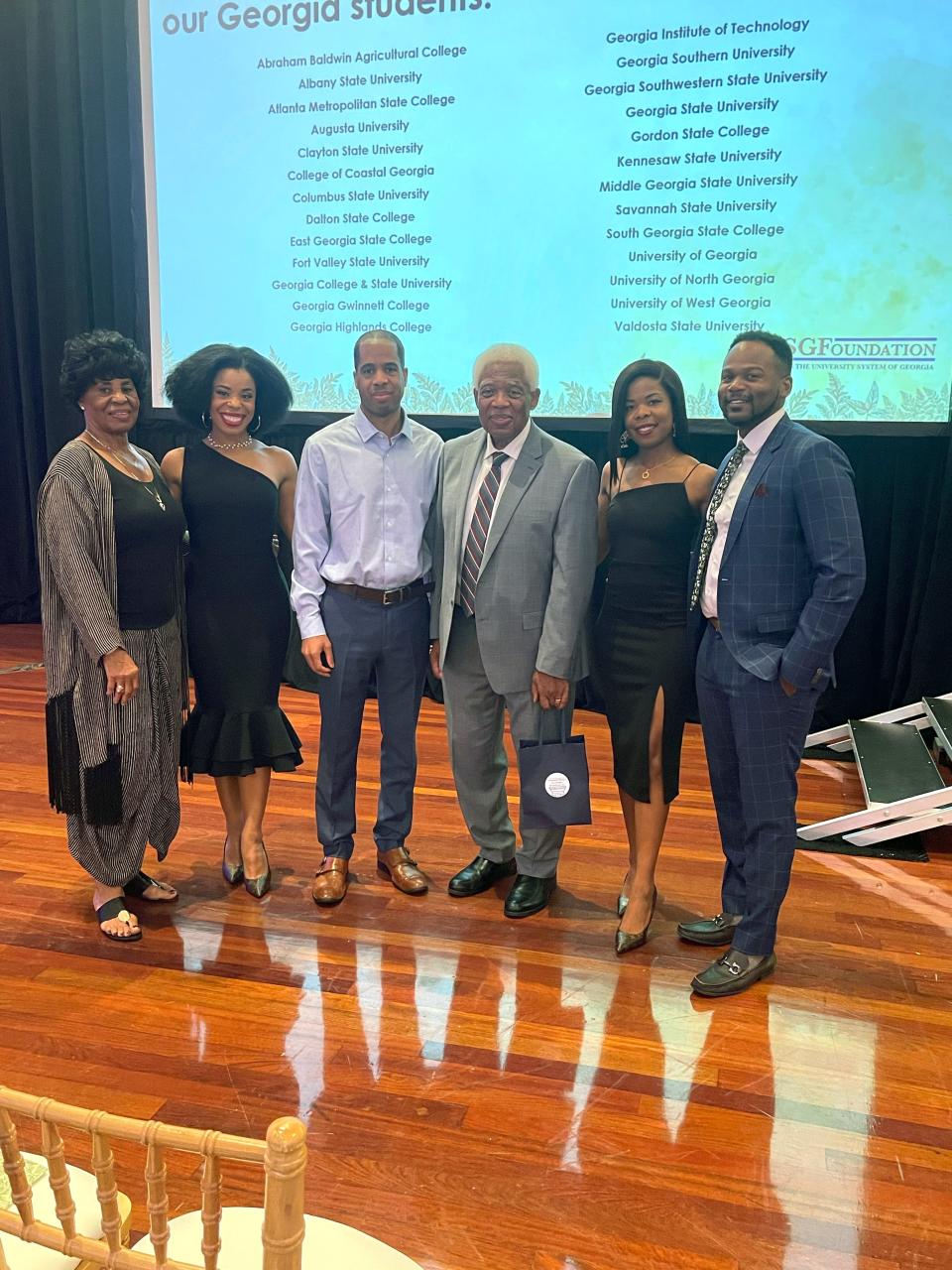After 45 years working at MCG, and longer learning there, Dr. Joseph Hobbs honored
The University System of Georgia Board of Regents this month honored Dr. Joseph Hobbs for his 45 years of service to the Medical College of Georgia during a gala. Hobbs' service includes 22 years as department chair of Family Medicine, the first African American chair at the school.
But Hobbs's connection to MCG went back well before he was accepted there into medical school. He recalled Saturdays while in high school meeting with biochemist William Harms at MCG as Hobbs as he worked on winning science fairs by studying the biological effects of space travel.
"He would just pulverize me with information about biochemical interactions," Hobbs said.

An Augustan from birth, Hobbs was born in the old University Hospital in the segregated wing in 1948. He met Harms through Rosa T. Beard, the chemistry teacher at A.R. Johnson Junior High School who worked with students on the rocket club and the science fair. Supportive parents and great teachers set him on the track for educational success, and he left for Mercer College intending to pursue biochemistry, not medicine.
"Anything that is attributed to my achievement is really based upon the advocacy, the support, and nurturing and mentoring of people in the community who, for no personal reasons, just reached out to support us," he said.
In college Hobbs spent a summer working in the Harvard University lab of James Watson, who did some of the pioneering research on DNA structure, although the scientist was on book tour at the time. Hobbs was accepted in to a doctorate program at Harvard.
"That's where I was going," Hobbs said. "And then something happened. And that was the Vietnam War. ... My draft number was 64."
Hobbs realized it was unlikely he could complete a doctorate without being called up for military service. He had also applied to MCG out of respect for the people who had mentored him, including with Claude-Starr Wright, the then-section chief of hematology oncology. As he was trying to decide, the recruiter from MCG came to Mercer and found Hobbs at the pre-med club, handing him his acceptance letter there.
"(He) said to me, 'Oh, if I'm not mistaken, you're the first student from Mercer to be admitted to medical school this year,'" Hobbs said. "I mean, any hesitation that I had about looking at medicine just kind of evaporated."
Hobbs did his medical education, then his residency at MCG. When he graduated, most of the practice groups were all white; and he did not want to open a solo practice. But as chief resident in his residency program, Hobbs was offered the chance to stay on as a faculty member and do something he had wanted to do from the beginning, teach.
"This was in family medicine. Family medicine was a new discipline at that point in time," he said. "And so a lot of the guardrails, a lot of the formality of the discipline had not been established at that point in time. And it was an environment where you could really think outside of the box with regards to the delivery of care."
And so Hobbs stayed at MCG. His wife, Janice, was also from Augusta, and they had family ties; but also every time he applied elsewhere a new opportunity opened at the medical college, he said.
MCG was also pioneering techniques in medical education, including having regional campuses across the state. While sometimes slow to adapt, Hobbs said, the medical college went all in when it decided to change.
"A lot of people actually came to study what we were doing," Hobbs said. "... We were not like an isolated department. We had colleagues across the country with whom we worked."
MCG moves forward: 'Great day for Augusta': Augusta University and Wellstar deal signed and finalized
Also at AU: Augusta University President Brooks Keel to retire at the end of this academic year
Hobbs retired as chair in 2020, but still coordinates opportunities for medical students to learn at federally-funded health centers. His passion for space that he had in high school has continued, including to Lego models of space craft. He is also enjoying following his children's careers. "They're in the middle of the excitement now," he said.
At the gala, though, it was Hobbs who was in the middle of the excitement as he received the 2023 Regents Hall of Fame Alumni and Distinguished Friends Award. He appreciated having a number of colleagues from Augusta University there, but was most impressed by two students who spoke.
"Those were really the highlights of the night, I thought," he said.
This article originally appeared on Augusta Chronicle: Dr. Joseph Hobbs honored for 45 years at Medical College of Georgia

